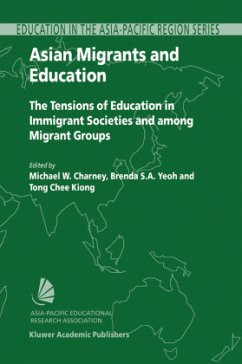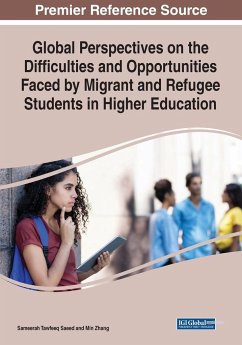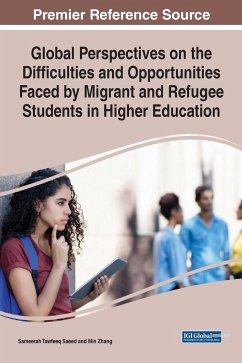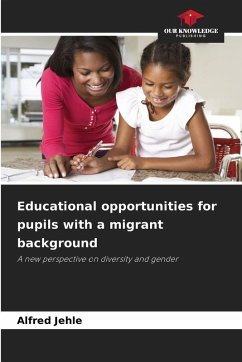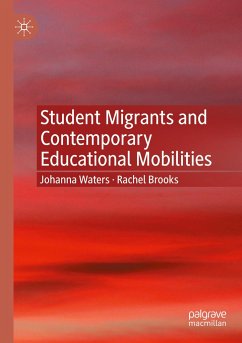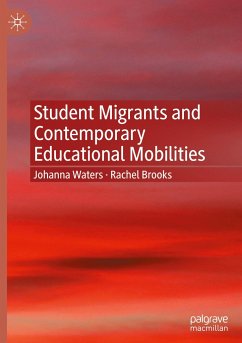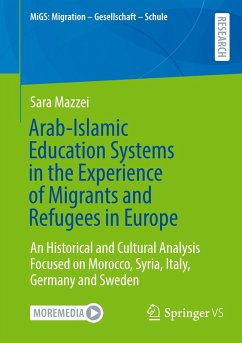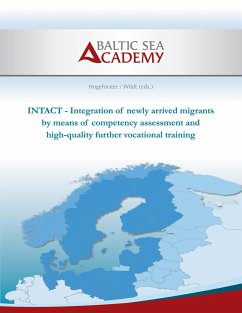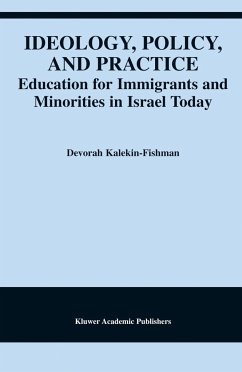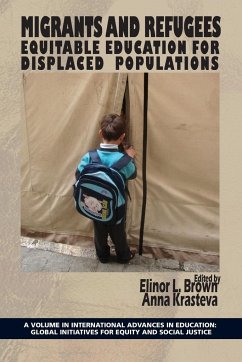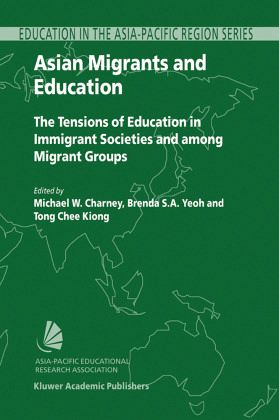
Asian Migrants and Education
The Tensions of Education in Immigrant Societies and Among Migrant Groups
Herausgegeben: Charney, Michael W.; Yeoh, Brenda; Tong Chee Kiong
Versandkostenfrei!
Versandfertig in 6-10 Tagen
76,99 €
inkl. MwSt.

PAYBACK Punkte
38 °P sammeln!
education is and what its functions should be. As Thomas explains, migrant communities need a culture-sensitive education, that is, an education that can both accommodate their special cultural needs and prepare them for life in an increasingly globalized world. To meet this need, Thomas discusses planning strategies and the special role of teachers in transmitting this education. As Thomas warns, however, a culture sensitive education is continually threatened by the dominance of the West and religious traditions, such as Islam, Buddhism, and Hinduism in global cultural flows. Pang raises the...
education is and what its functions should be. As Thomas explains, migrant communities need a culture-sensitive education, that is, an education that can both accommodate their special cultural needs and prepare them for life in an increasingly globalized world. To meet this need, Thomas discusses planning strategies and the special role of teachers in transmitting this education. As Thomas warns, however, a culture sensitive education is continually threatened by the dominance of the West and religious traditions, such as Islam, Buddhism, and Hinduism in global cultural flows. Pang raises the problem of modem, especially new and migrant, societies being unable to face the challenges of environmental issues. Some claim, for example, that these societies lack the right approaches to the environment or suffer from the inability to develop the proper "eco-ethic." To meet this problem, Pang draws the discussion back to the continued relevance of traditional education to contemporary issues facing a shrinking world: how immigrant societies and their diverse storehouses of traditional knowledge can inform current approaches to environmental management. In order to develop the necessary eco-ethic, migrant and other societies need to utilize old traditions relevant to environmental preservation in their production of modem education.





